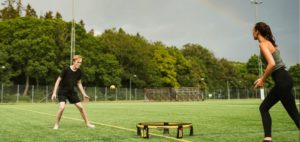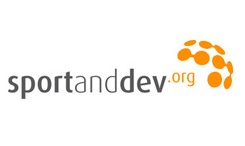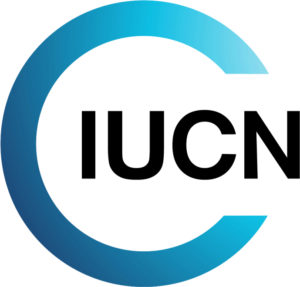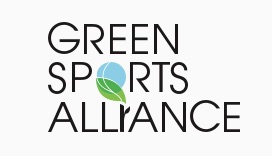
OL Reign: How Lauren Barnes is going ‘MAD’ for sustainability
By Tammy Waldman Think of the most sustainable football team in the world. Forest Green Rovers? That’s probably where the smart money is – […]



Professor Bruce Kidd shares thoughts on urgent need to address physical inactivity
Today is International Day of Sport for Development and Peace, an occasion marked every year to promote healthy lifestyles. Former Olympian and KPE Professor […]


SAFE
A digital event organized by SAFE: “SAFE Racing, Innovation, Technology & Sustainable Mobility” goes live. At this special event the latest challenges and opportunities linking the international motor racing competitions to technological innovation and sustainability will be discussed.
Innovation and new technological solutions are key factors for the increasingly efficient electric powered competitions, as in the case of the FIA Formula E World Championship, the FIM ENEL Moto WORLD CUP, and the latest Extreme E and UIM E1 World Electric Powerboat Series.
These breathtaking competitions take place in historic circuits and iconic cities, but also in the deserts, forests, glaciers, seas and lakes of our Planet. Their mission is to combine awareness, community perception and care for the environment with the fascination of motorsports, shining the spotlight on the fight against climate change and sustainable mobility.
Thursday’s event, with its exclusive format, will open with a high level panel bringing together special guests from the world of sport and energy:
- Alejandro Agag, Extreme E- CEO and Formula E- Chairman
- Rodi Basso, UIM E1 Series- CEO
- Raffaele Chiulli, GAISF, SportAccord, ARISF and UIM – President
- Francesco Venturini, Enel X- CEO
To encourage and inspire new generations to become the future leaders of sustainability, on April 8th, the Formula 1, Formula E and Extreme E world champions will be on track at the opening of the 22nd edition of the SAFE Master. There will be special contributions from:
- Nico Rosberg, 2016 Formula 1 World Champion with Mercedes, and now a sustainability ambassador
- Jenson Button, 2009 World Champion with Brawn, and currently an Extreme E driver
- Lucas Di Grassi, Formula E World Champion with Audi Sport
This event represents a great opportunity to touch first-hand the synergies between motorsport, innovation, energy and mobility to shape a more sustainable future for our Planet.
Don’t miss it. #JoinTheRace
To register and watch the event: https://www.youtube.com/watch?v=pMuAcCZ_pkI





Retrofit buildings at Tokyo 2020 honor history and environmentalism
Nine of the retrofit structures at the Olympic Games Tokyo 2020 will be outfitted with building solutions powered by Dow technology designed to seal, […]




sportanddev.org is an online resource and communication tool dedicated entirely to sport and development. Sportanddev has three main goals:
- Increase the visibility of sport’s development potential among the target groups of sportanddev.org
- Contribute to improving sport and development practice
- Encourage dialogue, promote partnership building and facilitate strategic alliances. sportanddev.org is governed by a group of committed stakeholders and is managed by an aperating Team hosted and situated at the headquarters of the Swiss Academy for Development (SAD)





The Sustainability Report is an independent platform that provides economic, social and environmental intelligence for the sports industry. We showcase leadership, strategy, research and innovation through in-depth analysis, insightful podcasts, research-driven reports, and engaging animations. The Sustainability Report is published by Touchline, a multilingual international agency specialising in sustainability, sport and reporting














The International Union for Conservation of Nature (IUCN) is a membership Union uniquely composed of both government and civil society organisations. It provides public, private and non-governmental organisations with the knowledge and tools that enable human progress, economic development and nature conservation to take place together.
Created in 1948, IUCN is now the world’s largest and most diverse environmental network, harnessing the knowledge, resources and reach of more than 1,300 Member organisations and some 15,000 experts. It is a leading provider of conservation data, assessments and analysis. Its broad membership enables IUCN to fill the role of incubator and trusted repository of best practices, tools and international standards.
IUCN provides a neutral space in which diverse stakeholders including governments, NGOs, scientists, businesses, local communities, indigenous peoples organisations and others can work together to forge and implement solutions to environmental challenges and achieve sustainable development.
Working with many partners and supporters, IUCN implements a large and diverse portfolio of conservation projects worldwide. Combining the latest science with the traditional knowledge of local communities, these projects work to reverse habitat loss, restore ecosystems and improve people’s well-being.
What’s biodiversity?
Biological diversity, or biodiversity in short, is defined by the Convention on Biological Diversity as the ‘.. variability among living organisms from all sources including, inter alia, terrestrial, marine, and other aquatic ecosystems and the ecological complexes of which they are a part; this includes diversity within species, between species, and of ecosystems’. Biodiversity supports valuable ecosystem services that are essential for the survival and healthy functioning of human society and its economic activities.
The links between Sport and Biodiversity
Sport can have significant negative impacts on biodiversity, through the construction and use of sports venues and the staging of sporting events. Sport can negatively impact biodiversity through land use to build permanent or temporary sports venues and facilities, as well as through the pollution, noise, waste, lighting, traffic, and resource demand resulting from the staging of sporting events attended by hundreds or thousands of spectators. At the same time, sport, through its global reach, can be an important catalyst for raising awareness about the need for biodiversity conservation, and promoting and supporting efforts to enhance biodiversity.
Understanding and managing the potential negative impacts and opportunities for conservation is vital for ensuring that sports venues and sporting events deliver successfully both from the financial and operational standpoint. Unmanaged or poorly managed biodiversity impacts can lead to financial, regulatory, operational, and reputational risks. On the other hand, timely and effective action to mitigate risks and enhance conservation can help venues and event planners and organisers increase their social license to operate, more easily attract future sporting events, establish long-term positive relationships with communities and the media, and attract sponsors.
Mitigating negative impacts on biodiversity
The construction of new sports venues, the installation of temporary venues and associated facilities, and the use and refurbishment of existing venues can all impact on biodiversity. The type of risks and opportunities will vary, depending mainly on the location of the venue (i.e. whether it is sited in an urban area or in the natural environment, and the importance of that environment for biodiversity) and on its size. While the impacts may be broader, more severe, and more obvious in a natural, undeveloped area, where it is often necessary to construct access roads, power supply infrastructure, and water and sewer infrastructure (amongst others), there are also risks to developing in urban areas, where many species make their homes within the built environment.
The staging of sporting events in both urban and natural settings can impact biodiversity through the presence of large numbers of spectators, who increase noise, vibration, pollution, waste generation, and traffic. Other risks to biodiversity from sporting events include oil or fuel spills, sewage discharge, light pollution, increased use of chemicals and fertilisers, and increased demand for natural resources.
To address these potential impacts, developers should first comply with all legal and statutory requirements relating to biodiversity. Beyond compliance, the recommended way to manage biodiversity impacts effectively is through the mitigation hierarchy of avoidance, minimisation, restoration, and offsetting of residual impacts. Preventive mitigation measures (avoidance and minimisation) are always preferable to corrective measures (restoration and offsets).
Maximising opportunities for biodiversity conservation
Sporting events and their associated facilities can leverage opportunities to promote and support biodiversity conservation through a variety of activities and initiatives, including:
• enhancing natural habitats in urban environments by restoring degraded sites, connecting fragmented habitats, building ‘green’ rooftops and living walls, installing man-made habitats for wildlife, increasing the diversity of plant species, and incorporating plantings in their project design that provide additional habitat and benefits to local fauna and flora;
• increasing the area under protection through on-site or off-site protection of natural features;
• generating funds and increasing awareness for protected area management by staging low-impact sporting events, such as running or mountain biking, within or partially within protected areas;
• raising public awareness about biodiversity through the use of biodiversity elements as mascots or as part of an event’s logo, and the creation of public exhibits and educational programs, as well as through sports commentators and individual, high-profile athletes;
• increasing available knowledge and data by sharing biodiversity inventories and baseline information that may be required as part of venue development with conservation organisations and research institutions; and
• generating biodiversity benefits through projects designed to offset the carbon footprint of a venue or event.
Where can you find solutions?
IUCN, in collaboration with IOC, has developed a series of guides designed to help decision makers understand and manage these potential impacts, as well as for maximising opportunities to use sport as a way to promote and enhance biodiversity conservation.
Read more about the Guides: Sport and Biodiversity published by IUCN (International Union for Conservation of Nature) in 2018
- Sport and biodiversity in 2018
- Mitigating biodiversity impacts of new sports venues - published by IUCN (International Union for Conservation of Nature) in 2019
- Mitigating biodiversity impacts of sports events - published by IUCN (International Union for Conservation of Nature) in 2020






Sport and Sustainability International (SandSI) is a non-profit Swiss association that seeks to accelerate sustainability in and through sport. SandSI is a global membership organisation, bringing together both sport and non-sport entities as well as athletes and scholars from all continents, using one common language: sport. Through its programmes, SandSI strives to have a positive impact on climate, waste and health, aligning itself with the UN Sustainable Development Goals. The 2030 SandSI Goals are:
- Climate: the sport sector to become carbon neutral by 2030
- Waste: the sport sector to become zero waste by 2030
- Health: the sport sector to contribute to 15% reduction on physical inactivity by 2030
- 1. Football4Climate: a multi-year programme with and for the football industry to addresses its impact and leverages the cultural and market influence of football to promote climate action
- 2. SDG Sport Lab: a creative platform to initiate, encourage and support concrete initiatives that use sport to contribute to the United Nations Sustainable Development Goals



















Making Earth-Friendly Football a Reality
Sustainability in sports still has a long way to go, but there is one place that is revolutionising the notion of becoming an “earth-friendly […]


Green Sport Alliance
Setting the Tone: Leading Sustainability Commitments Across the Sports Industry
Teams, leagues, and corporate entities continue to expand their goals and aspirations regarding zero waste, carbon neutrality, renewable energy and more. Join our GSA network as we discuss the history of these undertakings, the level of planning and execution that goes into these commitments, and how they are leveraging their organizations and partners to ultimately achieve their goals.
Speakers:
Isabella Bertold | Founder and Co-owner, La Prima Professional Cycling & Sustainability Entrepreneur
Samantha Foster | Managing Director, University of Southern California (USC) Endowment
Lee Spivak | Managing Principal of Sports and Entertainment, WM Sustainability Services
Moderator:
Garrett Wong | Member Services Manager, Green Sports Alliance
Date: Wednesday, March 31st
Time: 10:00am PT/1:00pm ET
Registration link : https://register.gotowebinar.com/register/4145860738724370445
